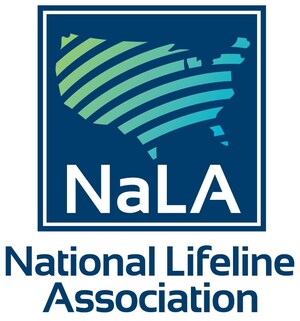
NaLA releases survey of low-income consumer demographics and experiences with FCC internet subsidy programs
KENNETT SQUARE, Pa., Jan. 23, 2025 /PRNewswire/ -- A new survey from the National Lifeline Association (NaLA) gives clearer insights into life without the Affordable Connectivity Program (ACP) for formerly enrolled subscribers.
NaLA's survey received more than 68,000 responses and nearly 30,000 personal testimonies from Lifeline and/or former ACP participants who shared information about themselves and how they use phone and broadband service.
Survey results show that Lifeline benefits fall short of addressing the growing broadband affordability gap, forcing respondents to cut budgets in other areas to maintain internet access.
Key findings:
- Without the ACP, Americans have had to make tough budget decisions to stay connected to the internet and face challenges without it. 40% reported cutting food spending to afford their monthly internet bills. 36% indicated they discontinued telehealth without the ACP and 64% said they could not maintain regular contact with friends and family.
- The end of the ACP resulted in adults having difficulty finding work and children struggling to complete homework. About 20% of respondents report being unable to work remotely or pick up shift work, and nearly 20% report children having difficulty completing homework assignments.
- Lifeline and ACP help those who really need it. At least 80% of Lifeline/ACP subscribers live at or below the poverty line. Nearly one-third are homeless or live in temporary housing. Over half are older Americans. This includes Americans facing unemployment due to a disability (31%) and retirees with limited incomes (12%). Without ACP/Lifeline support, 72% would not be able to pay for internet service every month.
- No co-pay plans are essential to keeping low-income Americans connected. Nearly 95% of Lifeline and ACP subscribers say they cannot afford any additional payments toward their monthly service, and about half of all respondents are unbanked.
- A majority of respondents are using broadband subsidies for essential services like healthcare, education and access to government services. 70% of consumers rely on their ACP/Lifeline benefits to access healthcare services, including communicating with doctors and telehealth appointments. Over one-third of subscribers use their ACP or Lifeline-supported devices to connect with their communities, pursue remote work opportunities, access jobs and participate in online education.
- 78% of respondents lack access to a consistent form of internet or mobile data. Without ACP/Lifeline benefits, 20% of consumers accessed the internet through a family member's devices, 27% used public libraries and Wi-Fi and over 31% had no internet access.
- Mobile data is essential for low-income consumers. 85% of consumers rely on mobile wireless services to meet their household needs, yet fewer than 15% have access to unlimited data plans. Over 80% of consumers closely manage their data usage due to budget constraints.
- Voice, text and data are all essential. Nearly 75% of consumers surveyed value access to voice, text and data equally. Those who prioritized one service feature over another said voice service was the most important service feature (16%).
In the aftermath of the ACP's lapse, consumers have had to rely on unreliable and inconvenient alternatives to access the internet. The Lifeline program is a small reprieve, as its $9.25 monthly subsidy comes nowhere close to the $30 per month offered by the ACP — an amount more consistent with market rates for entry-level mobile and at-home broadband plans.
"I have read thousands of heartbreaking testimonies from consumers since ACP funding ran out," said David B. Dorwart, Chairman of the NaLA Board. "Lifeline and the ACP bring affordable internet and phone service to the communities who need it most for everything from telehealth to school to staying connected with loved ones. Lawmakers must refund the ACP and fix the Universal Service Fund's Lifeline program to ensure all American households have affordable access to essential communications."
To read more survey results, visit the NaLA website.
About the National Lifeline Association (NaLA)
NaLA works toward the preservation and advancement of Lifeline and the ACP through stakeholder engagement, education, collaboration and advocacy. With an ecosystem-wide membership that includes service providers, distributors, network access aggregators, compliance and software solutions vendors, device manufacturers, program supporters and beneficiaries, NaLA provides a platform to pursue the goal of getting and keeping every low-income American connected to essential communications services.
SOURCE National Lifeline Association







Share this article